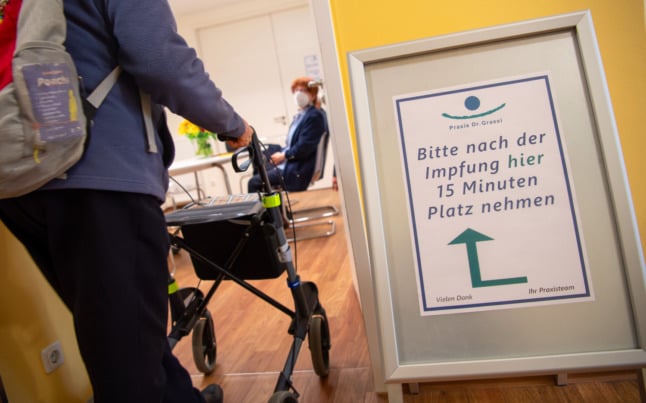Their kind haven’t been seen in Germany for at least two thousand years. Their chariots can’t be heard rumbling in the distance. Neither do we see them in their woven finery, fastened with gold and bronze, clutching swords.
So why is the German state of Baden-Württemberg counting on the Celts to provide a tourist boost in times of the coronavirus?
READ ALSO: Celtic tomb hailed as great architectural find
Beginning in 2019, Baden-Württemberg’s state government unveiled a new cultural policy, 'Baden-Württemberg & its Celts’, that would inject millions into a network of museums and cultural sites, dedicated to bringing the world of the Celts to life.

The sun sets behind a reconstructed hill grave in Eberdingen on July 10th. Photo: DPA
At the time, State President, Winfried Kretschmann was quoted as saying, “The special historical relationship of today's Baden-Württemberg to the Celts should be made more visible in the state and made emotionally tangible for people’.
This year the ‘Keltenland’ project has been unveiled, incorporating the massive redevelopment of sites such as the ‘lost city’ of Heuneburg near Sigmaringen. and the ‘princely grave’ of Hochdorf, near Ludwigsburg, as well as the establishment of several traveling exhibitions and cultural events.
READ ALSO: Irish in Germany: How many are there and where do they live?
‘Why now?’, you might ask. The answer lies in the significant discoveries made in the past decade – chiefly the aforementioned Heuneburg.
Rather than the lovably roguish warriors of ‘Asterix and Obelix’, artefacts taken from the Heuneburg revealed that the Celts who settled throughout the region created an advanced trading network.
This network brought goods into the region from throughout the Mediterranean world, in exchange for a variety of their handwork sent south. Combined with aerial photography and ground-scanning, these artefacts lead archaeologists to suggest that the Heuneburg could be considered the first ‘city’ north of the Alps.
Fortifications across the state also show that these Celts had a complex society that necessitated massive construction. The Ipf, near Bopfingen, and the Heidengraben near Grabenstetten demonstrate the ability of these local Celts to create massive earthworks that served as defensible bastions, and demonstrations of their power.

A silver ring from Trichtingen hangs in the Landesmuseum Württemberg as part of a Celtic exhibit. Photo: DPA
Finally, grave goods discovered at locations such as Hochdorf and Nagold showcase the Celt’s ability to create stunning works of jewelry from gold and other metals.
In particular, the Hochdorf site contains such a diverse range of complex, crafted goods as to blow apart conceived notions of the ‘Celts’ as barbarians and subsistence farmers. Rather, they strike experts of the period as some of the first ‘modern’ Europeans.
As the year progresses, and the country emerges further from the coronavirus lockdown, more about the ‘Keltenland’ initiative will be unveiled to the public.
As one of the largest cultural heritage projects currently active in Europe, many will be watching to see whether showcasing the world of the distant past will be enough to attract visitors to spend their money.



 Please whitelist us to continue reading.
Please whitelist us to continue reading.
Member comments